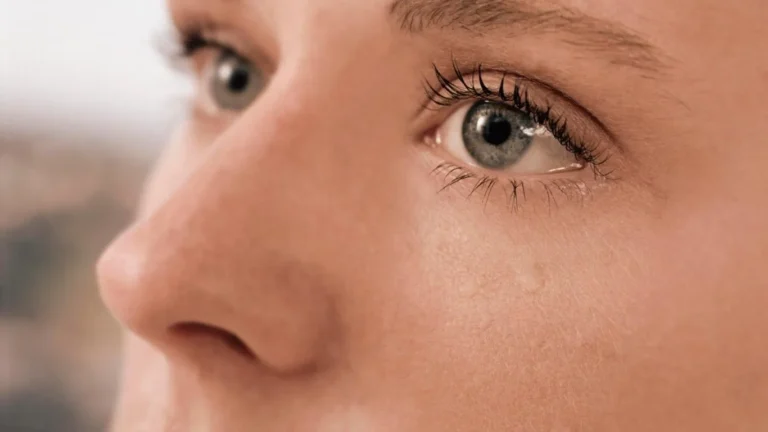Surprising Link: Can Asthma Cause Itchy Skin Without Rash?
Can asthma cause itchy skin without rash? You’d be surprised how often this question pops up in my practice. As a pulmonary nurse practitioner, I’ve had more than a few patients walk into my office, puzzled by a weird itching sensation that doesn’t come with the usual suspects—no rash, no hives, no dryness. Just a persistent, nagging itch. And more often than not, they’re asthmatic. So, is there a real connection, or is it just a coincidence? Let’s dive in.
Could Asthma Be Behind That Itchy Skin?

If you’ve ever dealt with asthma, you already know it’s not just about wheezing and shortness of breath. It’s a whole-body experience. And yes, that includes the skin. I’ve had patients describe this frustrating itch that drives them nuts—often on the arms, neck, or chest—with zero visible signs. They’re almost embarrassed to bring it up, like they think it’s “all in their head.” But trust me, it’s not.
Asthma is an inflammatory condition, and that inflammation doesn’t always stay neatly tucked away in your lungs. The immune system doesn’t really do “neat.” When it’s activated—especially in people with allergic asthma—it can affect other systems too, including the skin.
How the Immune System Connects Itchy Skin and Asthma
Here’s the deal: asthma is often linked with an overactive immune response. This response is triggered by allergens, irritants, or even stress. In that same overdrive state, your body can release histamines and other inflammatory chemicals. These chemicals don’t just cause lung inflammation; they can also make nerve endings in the skin super sensitive.
Now imagine those nerve endings firing off signals like, “Hey! Something’s irritating us!” even though there’s nothing visibly wrong. That’s how you end up with that itchy-but-no-rash scenario. It’s not a skin issue per se—it’s more of a systemic reaction.
Why There’s No Rash
This is where things get a bit tricky. When most people think of itchy skin, they expect to see something—red patches, bumps, peeling. But in asthma-related itch, the skin can look totally normal. That’s why it often goes undiagnosed or is brushed off as unrelated.
I remember one patient in particular—a young teacher who kept complaining about this relentless itch across her shoulders and upper back. She’d already tried changing detergents, switching soaps, even cutting out dairy thinking it was some kind of allergy. But her skin was spotless. No rash. No dryness. Eventually, we figured out it flared up after asthma episodes or during allergy season. A lightbulb moment for both of us.
Common Triggers That Link Asthma and Skin Sensitivity

Several triggers can make both asthma symptoms and skin sensitivity worse. Here are a few I see most often in my day-to-day:
- Pollen and Dust Mites: Classic asthma triggers, but also notorious for causing skin irritation.
- Cold, Dry Air: Not only tough on your lungs, but it can also zap moisture from your skin, making it more reactive—even without visible dryness.
- Stress: I cannot stress (pun intended) this enough. Stress can amplify both asthma and skin sensitivity by triggering immune responses.
- Medications: Some asthma meds, especially steroids, can thin the skin or change how it feels over time, even without topical symptoms.
When these triggers hit, they can spark inflammation in multiple systems at once. So, that random itch that seems to come out of nowhere? It could very well be your body’s way of reacting to the same irritant that flared up your asthma.
Can Asthma Cause Itchy Skin Without Rash? A Personal Take

As someone who’s been working with asthmatics for years, I’ve seen all sorts of unexpected symptoms—itchy skin being one of the more surprising ones. Patients often look relieved when I tell them they’re not imagining things. Just because there’s no visible rash doesn’t mean the itch isn’t real—or asthma-related.
It’s important to listen to your body. If you’re itching without an obvious cause and you have asthma or other allergies, it’s worth talking to your healthcare provider. It might be part of the bigger picture, and addressing your asthma properly could ease your skin symptoms too.
When Itching Becomes a Clue, Not Just a Symptom

One thing I always tell my patients: your body talks to you in weird ways. Sometimes that means chest tightness, sometimes it’s a dry cough—and yes, sometimes it’s skin that itches like crazy even though there’s nothing there. So when someone asks, can asthma cause itchy skin without rash, my gut reaction is: absolutely, let’s talk about it.
This might surprise you, but itching can actually be a helpful sign. Not in a “yay, I’m uncomfortable” kind of way, but more like a heads-up that inflammation is building up in your body. Especially in folks with allergic asthma, that itch could mean you’ve been exposed to a trigger—maybe even before your lungs start to react. I’ve had patients who could predict an asthma flare-up just by how itchy their neck or forearms got.
Is It All in the Nerves?
Let’s dig a little deeper. There’s something called neurogenic inflammation—it’s a fancy term for inflammation that’s set off by your nervous system. When your immune system is on high alert, it can send out signals that irritate nerve endings in the skin. And guess what? That triggers itching. No rash, no redness, but man, it can feel unbearable.
It reminds me of a middle-aged gentleman I treated last year. He was a lifelong asthmatic, but for the first time, he started getting intense itching across his scalp and back. Dermatologist ruled out anything skin-related. Turned out, it was tied to a shift in his asthma meds. We adjusted his treatment, and the itching vanished within a week. Wild, right?
Asthma Medications and Their Role in Skin Sensations

While we’re on the subject of treatment, let’s talk meds. Asthma medications are life-saving, but they’re not always skin-friendly. Here are a few that can stir up itchiness, even when you don’t see a rash:
- Inhaled corticosteroids: Great for reducing lung inflammation, but they can dry out mucous membranes and skin—sometimes causing that tight, itchy feeling.
- Oral steroids: Can mess with your immune and hormone balance, which sometimes leads to skin sensitivity or even pruritus (that’s the medical term for itching).
- Leukotriene modifiers: These are super helpful for allergic asthma, but in rare cases, they’ve been linked with neuropsychiatric side effects and skin sensations like tingling or itching.
If you’re noticing weird skin reactions after starting a new asthma med—even without a rash—it’s worth mentioning to your provider. You’re not overreacting. I promise, we’ve heard it all.
So, What Can You Actually Do About It?
Honestly, this is the part patients love: practical stuff. Because there’s nothing worse than hearing, “Yeah, it happens,” with no guidance on how to deal.
Here are a few tips I’ve seen work wonders for folks dealing with itchy skin without rash from asthma:
- Hydration is everything: Inside and out. Drink plenty of water, and use fragrance-free moisturizers—especially after showering.
- Skip the harsh soaps: I usually recommend gentle cleansers like Cetaphil or CeraVe. Avoid anything that says “invigorating” or “deep clean.”
- Track your triggers: If you notice the itch happens before your asthma symptoms, start a journal. It might help pinpoint allergens or patterns.
- Don’t ignore antihistamines: Even if you don’t have hives, antihistamines like cetirizine or loratadine can help calm the itch by blocking histamine responses in the skin.
And if none of that helps, don’t just tough it out. Talk to your provider. There could be an underlying immune imbalance or even an early sign of eczema or another allergic condition developing alongside asthma.
What Else Could Be Going On?

Okay, real talk—itchy skin isn’t always from asthma. I’ve had a few patients convinced it was their lungs, when in reality, it was something else. So before we blame asthma for everything, let’s zoom out for a second.
Here are a few other conditions that might cause itchy skin without a rash and could exist alongside asthma:
- Thyroid issues: Hypothyroidism can sneak up on you with subtle skin changes—dryness, itching, and general sensitivity.
- Chronic kidney disease: A surprisingly common cause of unexplained itching. It’s worth checking labs if the itch persists.
- Liver problems: Bile salt buildup can cause intense itching, especially at night, even with no visible changes.
- Anxiety or stress: I’ve seen stress-induced itching plenty of times. No rash, just nerves firing up the skin.
The key takeaway here? If you have asthma and you’re dealing with unexplained itch, it’s worth looking into—but don’t self-diagnose. You deserve a full workup if this is disrupting your quality of life.
And remember, just because it’s not visible doesn’t mean it’s not valid. You’re not making it up. In fact, that itch might be your body whispering something important—and as someone who’s been in the pulmonary game for a while, I say we listen to those whispers before they become shouts.
Managing the Itch: A Holistic Approach for Asthma Patients

Alright, so we’ve unpacked the whole mystery of can asthma cause itchy skin without rash—and if you’re like most of my patients, you’re probably wondering, “Okay… so what do I do now?” And honestly, I love this part of the conversation because this is where we get proactive. No more guessing, no more scratching in silence—we’re talking real, sustainable solutions.
In my own clinical practice, I’ve found that managing this weird itchy-skin-meets-asthma thing takes a little trial and error. There’s rarely a one-size-fits-all fix, but the more you understand how your asthma interacts with the rest of your body, the better equipped you’ll be to calm that invisible itch. Let’s get into some strategies that actually work.
Step One: Revisit Your Asthma Plan
Sometimes the itch is your body’s way of telling you your asthma isn’t fully under control. You might not be wheezing, but your immune system could still be on edge. I’ve seen patients improve dramatically just by tweaking their maintenance inhaler schedule or adjusting for seasonal changes.
Work with your provider to make sure your asthma action plan is current. Consider spirometry testing if it’s been a while—lung function may have changed without you realizing it. When your airways are happier, your skin might calm down too. Funny how that works.
Could Lifestyle Be Making Things Worse?

Let’s not forget the environmental side of the equation. I’ve had patients overhaul their home setup and see big changes in both breathing and skin comfort. Some quick wins:
- Humidifiers: Especially in the winter, dry air can irritate your respiratory tract *and* your skin. Just make sure to clean it regularly—mold is not your friend.
- Air purifiers: Great for filtering out pollen, dust, and pet dander—common culprits for both asthma flares and allergic skin reactions.
- Laundry habits: Switch to fragrance-free detergents. You’d be amazed how many skin flare-ups are triggered by leftover fragrance and fabric softeners.
- Shower temps: I know hot showers feel amazing, but they strip your skin’s barrier. Stick with lukewarm and moisturize right after.
Also, let’s talk stress. I know—easier said than done—but stress is a huge trigger for both asthma symptoms and skin sensitivity. A few patients have seen their itch practically disappear once they picked up yoga, journaling, or regular walks in fresh air. Sometimes, it’s not about another prescription—it’s about taking something off your plate.
When to See a Specialist
If the itch has become a daily (or nightly) nuisance and you’re not getting answers, don’t hesitate to loop in a dermatologist or allergist. There could be a coexisting condition like eczema, contact dermatitis, or even mast cell activation disorder flying under the radar.
Here’s something that might surprise you: some dermatologists now collaborate closely with pulmonologists for patients dealing with these overlapping issues. In fact, I’ve co-managed several patients with dual asthma and skin sensitivities, and having both specialties involved often leads to a breakthrough diagnosis.
Simple Symptom Tracker
If you’re not already tracking your symptoms, now’s a good time to start. I suggest something simple:
- Note when the itching starts (time of day, activity, exposure to allergens).
- Document your asthma symptoms alongside it—are you more short of breath? Using your rescue inhaler more?
- Track stress levels, food, and environment (new detergent, pets, pollen count, etc.).
This log can help you and your provider spot patterns you might not notice on your own. I’ve had patients who never made the connection between their itchy evenings and the scented candles they lit every night—until we pieced it together.
Wrapping It All Up with Some Encouragement
So, can asthma cause itchy skin without rash? Yes. And no, you’re not imagining it. While the link might not be as well-known as classic wheezing or coughing, I can tell you from real-world experience—it’s valid, it’s common, and you’re not alone.
The good news? With the right combination of asthma management, skincare, and environmental awareness, that silent itch doesn’t have to take over your life. Keep asking questions, keep listening to your body, and don’t settle for “nothing’s wrong” if your skin is screaming otherwise. You deserve answers—and relief.
References
- Asthma and Allergy Foundation of America
- American Academy of Dermatology
- National Center for Biotechnology Information
- American Gastroenterological Association
Disclaimer
This article is for informational purposes only and is not intended as medical advice. Always consult with a qualified healthcare provider for personalized medical guidance.

Bianca Nala is a compassionate Nurse Practitioner with a strong background in primary and respiratory care. As a health writer for Healthusias.com, she combines her clinical expertise with a talent for clear, relatable storytelling to help readers better understand their health. Bianca focuses on topics like asthma, COPD, chronic cough, and overall lung health, aiming to simplify complex medical topics without losing accuracy. Whether she’s treating patients or writing articles, Bianca is driven by a single goal: making quality healthcare knowledge accessible to everyone.







